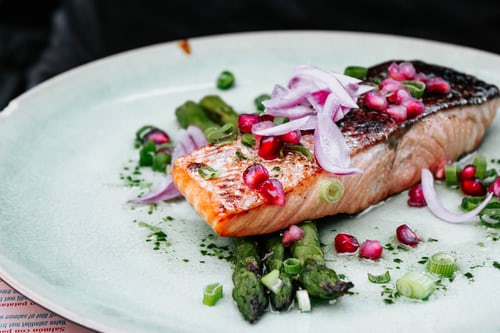What Is It?
Rheumatoid arthritis is an inflammatory condition which affects the joints of your hands, knees and ankles but sometimes it also has harmful effects on other parts of your body including your heart, circulatory system, eyes and lungs.
Rheumatoid arthritis most commonly develops between the ages of 30 and 50 and is about 3 times more common in women than in men.
What Causes Rheumatoid Arthritis?
Rheumatoid arthritis is an autoimmune condition of unknown aetiology (meaning we aren’t entirely sure why some people develop this condition and others don’t)
What Does This Mean?
What this means is that your immune system misidentifies certain body cells as foreign and because of this mounts an immune response against these cells (because things which get into our bodies from the outside world aka “foreign” have the potential to cause damage/illness. For example, viruses and bacteria).
Hence this immune response is useful if the cells were actually foreign (given that they have the potential to cause infection, illness and damage) but in this case they are not (they are your own body cells) which means the response is not only not useful but also harmful.
In rheumatoid arthritis the cells which are targeted as “foreign” are those in the lining of your body joints (synovium) and it is your body’s attempt at destroying these cells it has incorrectly identified as invaders which is responsible for the symptoms of inflammation, joint pain and swelling as the cartilage is broken down and bone damage occurs.
Where Diet Comes In

There is a small body of data showing positive effects of particular foods and nutrients on prevention as well as managing symptoms of rheumatoid arthritis.
Similarly, there are also various studies linking certain eating patterns to negative effects and increased inflammation and pain including diets high in refined sugars including sugar sweetened beverages (soft drink/soda/pop).
Dietary Patterns, Specific Nutrients and Foods Linked to a Positive Effect on Symptom Reduction
A diet which includes a variety of foods from the 5 core food groups (vegetables, fruit, grains, dairy and meat and alternatives) in regular and adequate amounts to meet your energy and micronutrient needs is your highest chance of ensuring your body has the resources on board it needs.
Omega 3 Fatty Acids
Omega 3 fatty acids have long been recognised for their anti-inflammatory properties1-2 and this is thought to be the reason their consumption is a beneficial part of treatment for those living with RA.
You can find omega 3 fatty acids in foods such as oily fish (salmon, tuna, mackerel and sardines) as well as nuts and seeds and plant oils.
Polyphenols
There are abundant types of polyphenols and they are found in plant foods to varying levels. They have been demonstrated to have anti-inflammatory properties including supressing c-reactive protein3.
You can find polyphenols in foods such as wheat, oats, rice, fruits, vegetables and nuts.
Mushrooms
There are certain substances within mushrooms which have been demonstrated to have immunomodulatory as well as immunosuppressor effects in mice with collagen-induced arthritis4. This has potential to be useful in humans and there’s likely no harm in upping your mushroom intake.
Citrus
Citrus is a good source of vitamin C and other anti-inflammatory antioxidants including phenolic acids which are helpful for reducing symptoms of rheumatoid arthritis.
Moving Beyond Diet As A Cure All

Like most health conditions rheumatoid arthritis is not a condition which can be healed through diet alone and in any case, it would be selling yourself short of what’s possible if you were to make dietary changes and stop there (even with the improvements these changes can bring).
So, along with making the above dietary changes what else can you do?
Clinical Hypnotherapy
In a nutshell one of the reasons clinical hypnotherapy is so effective for relief from symptoms as well as promoting healing from rheumatoid arthritis specifically is because we can use it to retrain, redirect improve your body’s psychoimmunology.
Psychoimmunology (or psychoneuroimmunology) refers to the communication between psychological processes, your nervous system and your immune system.
Evidently an important thing to utilise when it comes to autoimmune conditions including rheumatoid arthritis!
Clinical hypnotherapy can be used to retrain your immune system to make a distinction between self and foreign pathogens and therefore only mount an immune response in the appropriate situation (in the same way as someone without rheumatoid arthritis’s body is able to naturally).
As one example of the use of clinical hypnotherapy in rheumatoid arthritis treatment 66 people with rheumatoid arthritis were assigned to three different groups, a hypnosis intervention (26), a relaxation (20) and a waiting-list control group (20).
At the end of the trial period both objective (erythrocyte sedimentation rate. C-reactive protein, haemoglobin and leukocyte total numbers) and subjective (individual assessments of symptom severity and body and joint function, using standardised questionnaires and visual analogue scales) markers of symptoms and rheumatoid arthritis activity were significantly improved in the hypnosis group above both the relaxation and medication interventions5.
A Couple More Things to Consider
1. Stress
Research has found that “worrying” and psychological stress are leading indicators of rheumatoid arthritis activity, pain and fatigue6-8. This means under stress people experience more frequent and severe “flare ups” and for every person I’ve worked with who lives with rheumatoid arthritis they always report a past history of culminating stress which they often “know” eventually lead to the illness.
If you truly want to heal from rheumatoid arthritis (and most likely any other pathological condition possible for a human being to experience) there is perhaps nothing more beneficial than feeling calm, relaxed and in control.
If you want to take it even further then look for opportunities to experience feelings of joy, love and purpose in life and perhaps there is no more meaningful place to experience these feeling than through developing and enjoying…
and
2. Your Relationships
One of the greatest stressors on human beings is loneliness.
When we are lonely (even if we are not physically alone but in the midst of people who do not understand us or with whom we feel we cannot be fully accepted and appreciated for who we are “warts and all”) our parasympathetic balance is lost and our immune processes compromised9.
Choose relationships which fuel your heart and soul and build you up.
To do this, it is usually necessary to invest the time into developing and practicing skills which will allow you to effectively communicate, be assertive, set boundaries and be authentic in your relationships. Knowing theoretically that these skills are useful is not where the magic is (another reason why I love hypnosis and coaching because they are both means by which we bring the knowledge into real life and nothing is truly useful until it is real life!)
Take Home Message

There is growing evidence supporting the positive effects a number of foods and specific nutrients have on reducing symptoms of rheumatoid arthritis as well as prevention of developing rheumatoid arthritis. In particular eating a varied diet with amounts of nutritious foods that meet your energy and micronutrient requirements is your place to start. Beyond that it is worth looking at increasing your intake of foods higher in specific nutrients such as omega-3 fatty acids and polyphenols.
Conversely there is also evidence linking some eating patterns to having negative effects including diets high in sugar-sweetened beverages.
Therefore, rather than symptom reduction being condensed to a single or even multiple food/s or micronutrient/s it is your overall diet quality that matters.
As a dietitian I am yet to see a client or condition that would not benefit from eating well.
Looking beyond diet and I am always going to reiterate the fact that dietary improvements alone are only ever part of the picture.
To make dietary changes in isolation or without addressing other positive life changes (including the examples I’ve given here of reducing stress and improving relationships) may at best get you part way to symptom remission and at worst add more stress and worsen your symptoms.
If you’re interested in exploring the links between psychoimmunology, diet and rheumatoid arthritis and how you can potentially use these to change your life always work with a health professional.
Overall, if you’re wanting to make life change beyond behaviour or even lifestyle change you’ll have to make changes to the person you are in a way that allows you to naturally deal with things different to what you have been.
And that is where the fun begins…
With my whole heart I hope you found this information useful and inspiring.

Become Great. Live Great.
Bonnie.
Reference
- Innes JK, Calder PC. Omega-6 fatty acids and inflammation. Prostaglandins Leukot Essent Fatty Acids 2018;132:41–8.
- Calder PC. Omega-3 fatty acids and inflammatory processes: from molecules to man. Biochem Soc Trans 2017;45(5):1105–15.
- Paskova L., Kuncirova V., Ponist S., Mihalova D., Nosal R., Harmatha J., Hradkova I., Cavojsky T., Bilka F., Siskova K., et al. Effect of N-Feruloylserotonin and Methotrexate on Severity of Experimental Arthritis and on Messenger RNA Expression of Key Proinflammatory Markers in Liver. Immunol. Res. 2016;2016:7509653.
- Kim GY, Kim SH, Hwang SY, et al. Oral administration of proteoglycan isolated from Phellinus linteusin the prevention and treatment of collagen-induced arthritis in mice. Biol Pharm Bull. 2003;26(6):823–831.
- Horton-Hausknecht JR, Mitzdorf U, Melchart D. The effect of hypnosis therapy on the symptoms and disease activity in Rheumatoid Arthritis. Psychol Health. 2000;14(6):1089-1104.
- Evers, A. W. et al. Does stress affect the joints? Daily stressors, stress vulnerability, immune and HPA axis activity, and short-term disease and symptom fluctuations in rheumatoid arthritis. Ann. Rheum. Dis.
- Zautra, A. J. et al. Immune activation and depression in women with rheumatoid arthritis. J. Rheumatol. 2004;31: 457–463.
- Davis, M. C. et al. Chronic stress and regulation of cellular markers of inflammation in rheumatoid arthritis: implications for fatigue. Brain. Behav. Immun. 2008;22;24–32.
- Jaremka, L. M. et al. Loneliness promotes inflammation during acute stress. Psychol. Sci. 2013;24:1089–1097.



